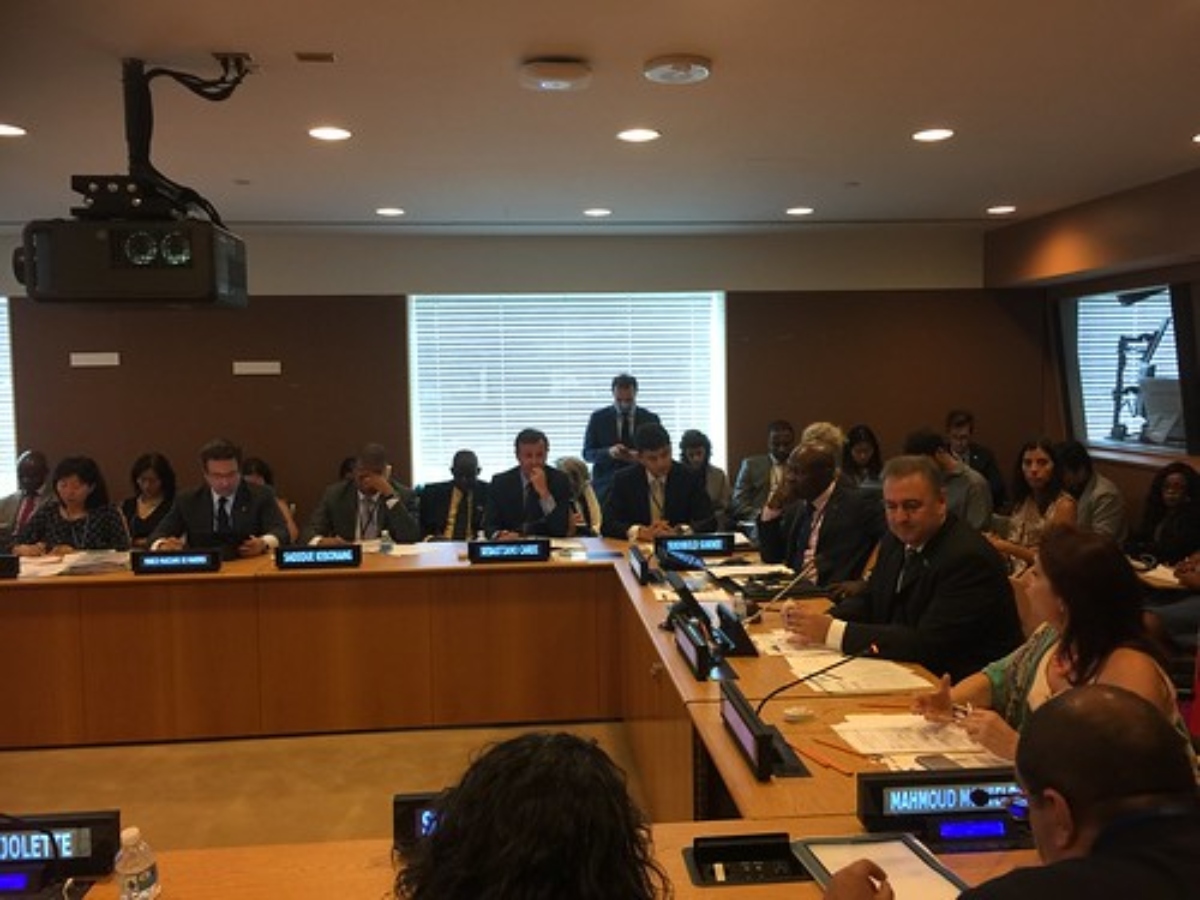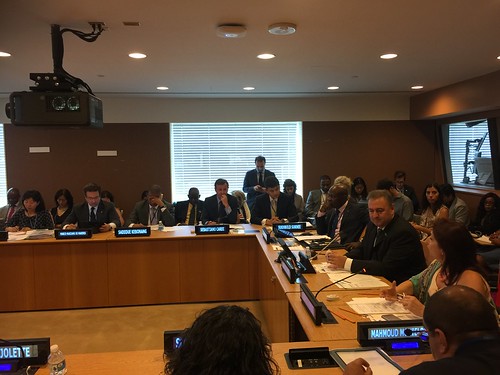
The theme for the 2016 International Day of Cooperatives (IDC) is ‘Cooperatives: The power to act for a sustainable future’.
The slogan coincides with the theme of implementation of the UN Sustainable Development Goals, to which the cooperative movement has pledged its commitment. It also echoes the slogan of the 2016 International Summit of Cooperatives, which will take place in October 2016 and address cooperative engagement in SDG achievement.
In September 2015, the UN Member States adopted a 2030 Agenda for Sustainable Development, containing the seventeen SDGs. In paragraphs 41 and 67 of the outcome document, cooperatives are acknowledged within the private sector as important actors in implementing the Agenda. Cooperatives are similarly mentioned in paragraphs 13, 35 and 39 of the Financing for Development outcome document adopted in August 2015.
Message of the United Nations Secretary-General
English | Français | Español | Русский | عربي | 汉语
Special Event
The Division for Social Policy and Development (DSPD) of the UN Department of Economic and Social Affairs (UNDESA) in partnership with the Committee for the Promotion and Advancement of Cooperatives (COPAC) will co-host the UN observance of the 2016 International Day of Cooperatives on 11 July 2016 from 1:15pm to 2:30pm at UN headquarters in New York, during the High-Level Political Forum on Sustainable Development.
The event will focus on cooperatives’ innovative approaches to implementing the 2030 Agenda, by exploring the contributions of cooperatives to sustainable development in countries around the world and showcasing examples of innovation in achieving the SDGs.
Among the speakers are:
- His Excellency Vincent T. Seretse, Minister for Investment, Trade and Industry, Republic of Botswana
- His Excellency Sebastiano Cardi, Permanent Representative of the Mission of Italy to the UN
- His Excellency Sukhbold Sukhee, Permanent Representative of the Mission of Mongolia to the UN
- Daniela Bas, Director, Division for Social Policy and Development (DSPD), UN Department of Economic and Social Affairs (UNDESA)
- Ariel Guarco, President, Co-operative Confederation of Argentina (COOPERAR)
- Sonia Maria Dias, Waste Sector Specialist, Women in Informal Employment: Globalizing and Organizing (WIEGO)
The event will also feature a presentation of the International Co-operative Alliance’s Co-ops for 2030 campaign, an online platform for co-operatives to learn about, pledge to and track their progress on achieving the SDGs.
Presentations:
- Mr. Ariel Guarco - Presidency of the Co-operative Confederation of Argentina (COOPERAR)
- Mr. Hongbo Wu - United Nations Under-Secretary-General for Economic and Social Affairs
- The minister of investment, trade and industry - Botswana and chairperson of Africa co-operative ministerial committee honourable Vincent t. Seretse
- H.E.Mr.Sukhbold Sukhee, Ambassador plenipotentiary and extraordinary
- Sonia Dias - Women in Informal Employment: Globalizing & Organizing (WIEGO)
Watch the full event on UN Web TV
Video Interviews
Watch UNSDN Video Interviews with Monique Leroux (ICA), Vinicius Pinheiro (ILO) and Carla Mucavi (FAO) on how cooperatives can contribute to achieving the Sustainable Development Goals (SDGs).
Photo Exhibition
In celebration of the International Day, COPAC will host a photo exhibition at UN headquarters in New York in July 2016. The theme of the exhibition is ‘Cooperatives: The power to act for a sustainable future’.
To learn more about the photos selected and their stories, please visit COPAC website.
Successful Stories
Cooperatives Help Eradicate Poverty

Cooperatives are enterprises created by and for people to serve their members’ economic and social needs. Based on values such as self-help, democracy, equality, and solidarity, and guided by principles inspired by those values, cooperatives focus on long-term goals for the greater good, rather than short term profits for a few. Through a cooperative, disadvantaged people can create their own economic opportunities, participate in decision-making processes that concern them, and turn individual risk into collective risk.
Take the example of Olavo Aparecido Luciano, 46, who lives in Corumbataí do Sul in the Southern Region of Brazil (pictured). When his crops were destroyed by drought and hailstorms, he considered selling his land and moving with his family to a large city to find work. Instead, he decided to join other smallholder farmers in the cooperative Coaprocor, and began producing passion fruit, oranges, and strawberries to salvage his business and earn a sustainable income.
Today, Coaprocor has 800 members and has started exporting organic fruit to Germany. Luciano’s eldest daughter was able to pursue her studies and will be the first of the family to earn a college degree.
Cooperatives Provide Decent Work
Given their focus on people and their needs, cooperatives have proven to be resilient, and even recorded growth, during times of crisis. They also generally place more emphasis than their corporate counterparts on job security, competitive wages, and additional income through profitsharing. Cooperatives are a source of decent work and increase inclusion of marginalized groups, such as youth and indigenous people, in the workforce.
At least 250 million people around the world secure their livelihoods through cooperatives, either through direct employment or by organizing their activities through a cooperative. Being enterprises democratically controlled by their members, cooperatives also allow workers to participate in the decision-making processes that affect them.
In the opposite photo, a rural cooperative gathers women from the district of Lahore, Pakistan.
More successful stories are available here.
Resources:
 Welcome to the United Nations
Welcome to the United Nations

